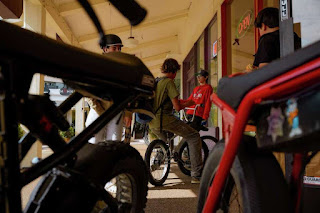On every kind of thoroughfare from Interstate highways to dirt roads, drivers exceed the speed limit. To be fair, it's easy to do on a deserted rural lane or when all of the drivers around you are over the limit. I imagine that sometimes drivers think that 5 or 10 miles per hour over the speed limit isn't much, especially if that threshold is 40 MPH or greater.
What people often fail to realize, however, is how much more harm they can do by going "just over" the speed limit. As an example, William Davies piloted his Ford Focus at 48 MPH on a road where the posted limit was 40 MPH. Had he been a compliant driver, he would have been traveling three meters (about ten feet) slower per second when he approached an intersection in the Welsh town of Newport.
At an intersection, a few feet, let alone meters, can mean, literally, the difference between life and death--especially for someone crossing the juncture without the protection of 4000 pounds of metal.
A report issued after the court's inquest said as much. The excessive speed "more than minimally contributed" to Mr. Davies striking--and killing--16-year-old Joshua Fletcher.
The teenager, who was said to be a talented rugby player and was studying to be a mechanic, was riding his bike to school on 16 October 2020 when Mr. Davies struck him. The impact fractured his skull and caused multiple brain injuries. He was declared dead at the scene.
You may have noticed a key word in the paragraph before the previous one: "minimally." I can't help but to think that the report's author was a lawyer or had one by his or her side: It couldn't have been chosen more carefully or deliberately. That word allowed them to say "but" without saying "but."
To wit: According to that report, Fletcher crossed the intersection "carelessly" because he was distracted by the headphones he was wearing. OK, that's fair enough: I never have ridden with headphones. Also, the report noted, he wasn't wearing a helmet.
On the basis of those factors, the report, in essence, said that Joshua Fletcher--who rode his bike to school because he was late whenever he took the bus--was responsible for his own death.
Now, I am not a coroner or forensic scientist, and I have never had children (though I've taught and worked with them in other ways), so take what I am about to say for what it's worth: Rare is the circumstance when a child, or even a teenager, should be blamed for his or her own death. Even if we can agree that Fletcher "should have" worn a helmet and "shouldn't have" worn headphones while riding, he didn't deserve to die for making choices teenagers, left to their own devices, would make.
(I rode without a helmet as a teenager because the only ones available were the "leather hairnets"--like the old football helmets--or lids from other sports like hockey. And I rode without headphones because, well, we didn't have them in those days. But would I have gone bareheaded and with my ears plugged if helmets and phones were available?)
I am not saying that William Davies was some sort of homicidal maniac. He, too, made a careless choice--arguably more careless, since he had those 4000 pounds of metal and, one assumes, more wisdom than a sixteen-year-old would have.
Perhaps the point is not to assign blame but, rather, to look at what leads people to such tragedies. Of course cyclists should be encouraged to wear helmets and not to wear headphones. But drivers also need to be aware that they are, in essence, guiding a lethal weapon whose destructive force increases exponentially with incremental increases in speed.

